Fifteen militants were killed in a counter-terror operation in central Mali, the Malian Armed Forces said on Saturday, adding that one soldier died and two others were injured.
The “terrorists” were “neutralised, their weapons recovered and their motorbikes destroyed” during Friday’s mission in the Tina forest in the Mopti region, the Malian Armed Forces (FAMa) said in a statement.
The army “suffered one death and two injuries.”
#Lutteantiterroriste : les #FAMa ont mené ce jour, 20 avril 2018, une opération de ratissage dans la forêt de #Tina, cercle de #Tenenkou (#Mopti). Bilan : 15 terroristes neutralisés, des armes récupérées et des motos détruites. 1 mort et 2 blessés du côté des #FAMa. pic.twitter.com/5cwb3DP8hO
— Forces Armées Maliennes (@FAMa_Mali) April 20, 2018
JNIM claims Timbuktu attack
Meanwhile, the main al-Qaeda-linked alliance in Africa’s Sahel region on Friday claimed the April 14 attack on the international military “Supercamp” at the airport in northern Mali’s historic city of Timbuktu.
One U.N. peacekeeper from Burkina Faso was killed, 14 U.N. and French soldiers along with at least two civilians were wounded. According to the French military, at least 15 attackers were killed.
The United Nations said it marked the biggest single attack on its peacekeepers since they were deployed to Mali in July 2013.
Major General Bruno Guibert, commander since July 2017 of France’s Operation Barkhane, told L’Express that the Timbuktu attack was carried out with means rarely seen in Mali. It began with suicide vehicle bombs disguised as U.N. and FAMa vehicles, one of which was driven by a woman. The complex, four-hour attack then combined indirect mortar fire and RPGs, as fighters – some dressed as U.N. peacekeepers and some wearing explosive vests – attempted to penetrate the camp.
The French military said reinforcements were sent from Gao and Niamey including a Mirage 2000 fighter jet, a Tiger helicopter, and commandos deployed by NH90 helicopter and tactical transport aircraft to help defeat the attack.
In a statement posted on social media, the Support Group for Islam and Muslims (JNIM) said the attack was launched to avenge raids by French forces earlier this month that killed several of its members, including Moroccan national Said Haydara al-Maghribi, Mauritanian national Ayman Abu Abdallah Ahmad al-Shinqiti and Qutayba al-Ansari.
JNIM was formed last year and is led by Iyad Ag Ghaly, also known as Abū al-Faḍl, a Malian Tuareg from the Kidal region who previously founded and led the Islamist militant group Ansar Dine. His deputy is Yahya Abu el Hammam, an Algerian leader of al-Qaeda in the Islamic Maghreb.
According to CNN, the U.S. military estimates JNIM to be around 800 strong, while Islamic State in the Greater Sahara has around 300 members, and Islamic State West Africa, which operates around the Lake Chad Basin, counts around 3,500 active fighters.
The recent unrest in Mali began with a 2012 Tuareg separatist uprising against the state, which was exploited by jihadists linked to al-Qaeda who took key cities in the north.
The insurgency has gradually spread to the country’s center, where local grievances are sometimes exploited by radical Islamists in a region awash with guns. The groups have morphed into more nimble formations operating in rural areas, sometimes winning over local populations by providing basic services and protection from bandits.
In June 2015, Mali’s government signed a peace agreement with some armed groups, but other jihadists remain active, and large tracts of the country remain lawless.
France launched an intervention in its former colony in 2013. That mission evolved into the current Operation Barkhane deployment launched in 2014 with an expanded mandate for counter-terror operations across the Sahel region of West Africa, and around 4,000 French troops are deployed.
The U.N.’s Minusma peacekeeping force has around 12,000 military and 1,900 police personnel deployed from 57 U.N. partner nations, and is considered the U.N.’s most dangerous.
Minusma said it had recorded at least 85 major violent incidents and armed confrontations that resulted in at least 180 civilian victims since the beginning of the year.
More than seven U.N. peacekeepers have been killed in attacks in Mali this year alone. In the days prior to the Timbuktu attack, one U.N. peacekeeper from Niger was shot dead in northern Mali and in a separate attack, two U.N. peacekeepers were killed and 10 wounded by mortars in the country’s northeast.
More than 160 peacekeepers have died since the Minusma deployment began in 2013.
Meanwhile, in an initiative was spearheaded by France, Burkina Faso, Chad, Mali, Mauritania and Niger set up the 5,000-strong G5 Sahel joint counter-terrorism force that aims to train 5,000 troops to work alongside the French troops and the U.N. The group is currently supported by France, the U.S., and the E.U. among others.
Vast stretches of the country remain out of the control of Malian, French, G5 Sahel and U.N. forces, which are frequent targets of attacks.
Nomadic Fulani people and farmers from the Dogon ethnic group have also engaged in tit-for-tat violence, resulting in deaths.
Facing Mali equipment shortfalls, the UN asks Canada to deploy helicopters in June
With reporting from AFP



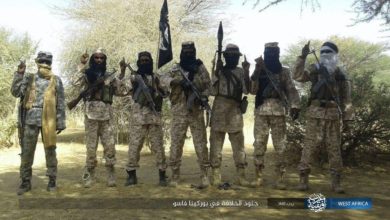

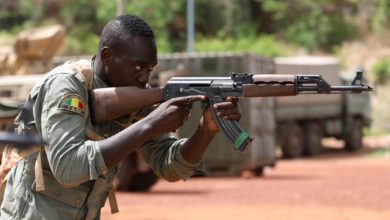
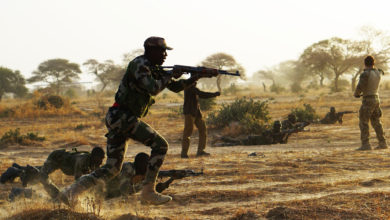
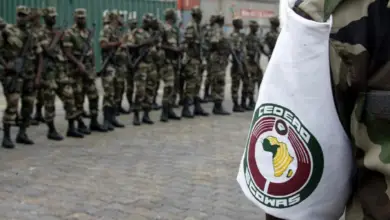


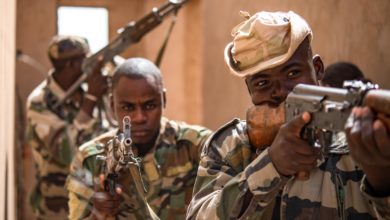
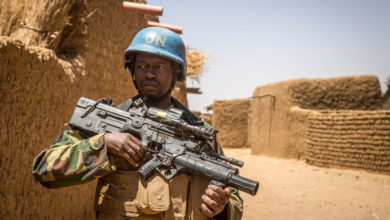
One Comment